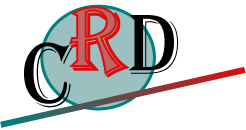Legislative Advocacy
Court systems, public law libraries, and other justice agencies must develop legislative advocacy
skills in order to maintain and improve their budget situations during these times of government
stringency. The advocacy may be at the state level, before a legislature and governorís office,
or at the local level, before a county governmentís legislative body. Although the styles of such
legislative advocacy will vary in order to blend with local attitudes, the principles are very much
the same.
Unfortunately, many justice agencies decide to begin legislative advocacy when
they are faced with extreme budget cuts by their budget decision-making institutions. Often the smallest agencies,
such as public law libraries, have no professional lobbyists under contract and are blindsided by proposed
budget cuts before they can respond. In such situations,
drastic measures need to be taken in order to ramp up the political power necessary to gain a fair hearing
and prevent a bad outcome. There are steps to be taken in such instances, but those will be highly dependent
on the situation. As a fair and impartial observer, Charles Dyer can offer his services to assess what can be
done at that late date.
Either well before such a crisis, or subsequent to the crisis, a stronger long-term strategy can be devised
to make legislative advocacy a routine part of the work of the court system, law library or other justice agency. The work would
begin with staff, but must ultimately involve the immediate decision-makers. For example, for a public law library,
the members of the law library board, commission, or committee, or supervising judge will need to step forward, and
then the stakeholders, the members of the judiciary, the bar, and the public.
There are two components of routine legislative advocacy. The first is building the political presence and
power needed in order to be able to have persuasive effect on the legislators or county officials. This means
courting the stakeholders, offering them services that ingratiates them to the court system, law library or other justice agency, and
listening to them. The law library or other justice agency would need to be seen as a necessary entity worth preserving.
Similarly, the
court systemís general health would need to be perceived as a necessary value. Only then, in the midst of a heated
legislative battle, can the stakeholders be relied upon to advocate openly on behalf of the justice agency.
Since justice agencies do not have funds to offer legislators as lobbyists from private corporations do,
their only power comes from their ability to sway endorsements and voters. Fortunately, good service and listening to
users also promotes their missions, so it is mostly the outward effort at communication with stakeholders that presents
added cost.
The second effort is working with the legislators or county officials themselves. Here again, an increased
communication effort is needed. The legislator or county official should not first hear of the justice agency's needs
after the trouble has begun, but much earlier. Agencies should begin their
communications by offering something to the legislators and county officials. For example, a brochure describing
the law libraryís or the self help center's services to self-represented litigants should be placed in every legislatorís office,
and regular visits to staff at the local office should be made. A similar brochure and office trips for a legal
services organization should be done. The legislatorís staff can then make referrals to the agency as
part of their regular constituent services. Secondly, the legislator or county official should be visited at least once
a year as a part of routine advocacy. Some statewide agency professional organizations now have regular legislative days.
In all these situations, a difficult task is packaging the message. There are times when a very short
message is necessary, one that may well hang on choosing just the right word. There is a methodology for
doing that. Charles Dyer is versed in recent theories in political science and communication theory that have come
from roots in cognitive linguistics.
There are also times when a more thorough analysis is proper. But even in these times, a necessary conciseness is
needed as the crush of legislative activity requires that the message be communicated quickly. Charles Dyer can
teach how to present such message in a logical, clear way.
The following link is to my own page that displays the materials I created for a presentation
at the 2008 Equal Justice Conference on legislative advocacy.
-
"Legislative Advocacy: A Cognitive Approach"
Legislative advocacy is not like advocacy in a courtroom. There is no time to develop the slow-paced methodical
argument in logical order. Instead, we must rely on the types of ordinary information receiving patterns we
normally use when making quick decisions. Cognitive science, cognitive psychology, and cognitive linguistics have
contributed greatly in understanding how we actually do receive and use information. Included is a Power Point presentation
giving a quick, usable review of these findings as they should be applied in legislative advocacy. The presentation uses as
its primary example the "framing" of a message during a legislative visit. Also included are some useful materials and links.
